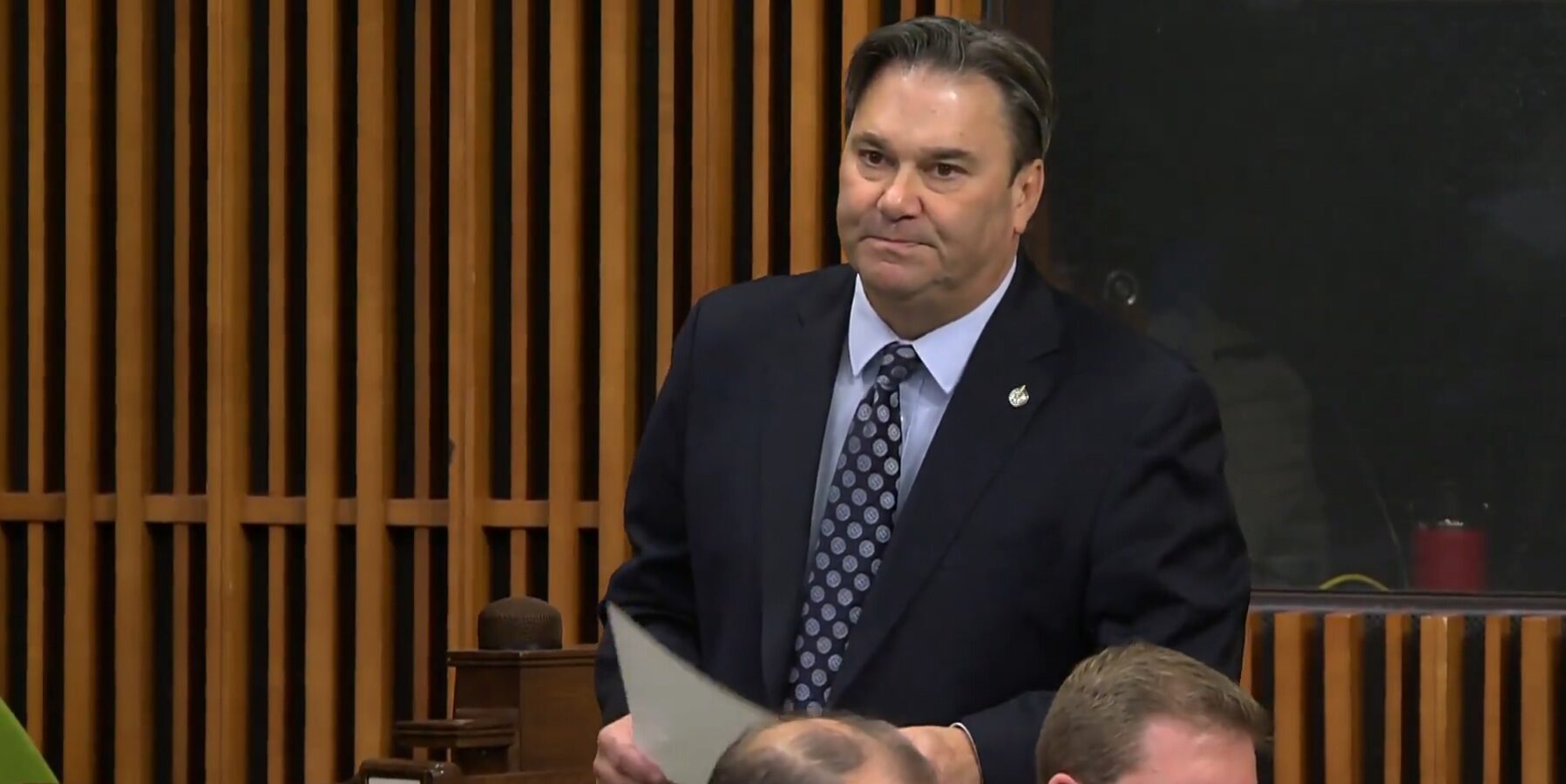Top Stories
NDP Faces Dilemma Ahead of Crucial Budget Vote Today

The Canadian government, led by Prime Minister Mark Carney, is set to face a pivotal moment as Parliament votes on its first budget later today. A negative vote would signify a loss of confidence in the current administration, potentially triggering a federal election just eight months after the last one. The government currently holds a slim minority, just two seats shy of a majority, a situation further complicated by recent political shifts, including Conservative MP Chris d’Entremont crossing the floor.
The official opposition, comprising the Conservative Party and the Bloc Québécois, has committed to voting against the budget. This leaves the New Democratic Party (NDP), with its seven MPs, and Elizabeth May, the sole Green MP, as crucial players in determining the budget’s fate. May has indicated her intention to vote Nay but is exploring options with senior Liberal officials to potentially change her stance, although the Liberal government has ruled out any amendments to the budget at this stage.
While the NDP has expressed discontent with various aspects of the budget, including its environmental implications and lack of support for underprivileged communities, the party is also cognizant of its own challenges. The NDP is currently without a permanent leader, with leadership elections scheduled for March 2024. Interim leader Don Davies faces significant hurdles, particularly regarding his limited proficiency in French, which could hinder his effectiveness during a campaign.
The budget, which emphasizes military spending and incentives for industry, has drawn criticism from several quarters, including environmental and labour advocacy groups. Notably, economist Mike Moffatt has pointed out that housing commitments within the budget do not meet the urgent needs of Canadians. Critics argue that the budget disproportionately benefits wealthier citizens while imposing burdens on lower-income individuals.
The Conservative government’s tax policy, including a reduction in the lowest marginal tax rate, has sparked debate about its fairness, particularly during a time of economic uncertainty exacerbated by international pressures, including tariffs and geopolitical tensions.
As the vote approaches, the NDP is under pressure to navigate a delicate balance. Many party members are wary of an early election, recognizing the potential risks involved, including the possibility of losing their current seats. The NDP’s strategy may involve abstentions or absences to ensure the budget passes without directly endorsing its contents, allowing them to continue advocating for their principles without facing immediate electoral consequences.
The current Parliament operates under a confidence convention, meaning that a budget defeat would likely lead to a call for a general election. The Governor General could either seek a new party to form a government or dissolve Parliament. However, given the current political landscape, the likelihood of any party other than the Liberals forming a government appears slim.
As Canadians await the outcome of today’s vote, public sentiment suggests a reluctance towards another election. In this context, the NDP must weigh its options carefully, balancing the desire to oppose the budget with the pragmatic need to maintain their representation in Parliament. The stakes are high, and the path forward remains uncertain for all involved.
-

 Education2 months ago
Education2 months agoBrandon University’s Failed $5 Million Project Sparks Oversight Review
-

 Lifestyle3 months ago
Lifestyle3 months agoWinnipeg Celebrates Culinary Creativity During Le Burger Week 2025
-

 Science3 months ago
Science3 months agoMicrosoft Confirms U.S. Law Overrules Canadian Data Sovereignty
-

 Health3 months ago
Health3 months agoMontreal’s Groupe Marcelle Leads Canadian Cosmetic Industry Growth
-

 Science3 months ago
Science3 months agoTech Innovator Amandipp Singh Transforms Hiring for Disabled
-

 Technology3 months ago
Technology3 months agoDragon Ball: Sparking! Zero Launching on Switch and Switch 2 This November
-

 Education3 months ago
Education3 months agoRed River College Launches New Programs to Address Industry Needs
-

 Technology3 months ago
Technology3 months agoGoogle Pixel 10 Pro Fold Specs Unveiled Ahead of Launch
-

 Technology1 month ago
Technology1 month agoDiscord Faces Serious Security Breach Affecting Millions
-

 Business2 months ago
Business2 months agoRocket Lab Reports Strong Q2 2025 Revenue Growth and Future Plans
-

 Science3 months ago
Science3 months agoChina’s Wukong Spacesuit Sets New Standard for AI in Space
-

 Education3 months ago
Education3 months agoAlberta Teachers’ Strike: Potential Impacts on Students and Families
-

 Technology3 months ago
Technology3 months agoWorld of Warcraft Players Buzz Over 19-Quest Bee Challenge
-

 Business3 months ago
Business3 months agoNew Estimates Reveal ChatGPT-5 Energy Use Could Soar
-

 Business3 months ago
Business3 months agoDawson City Residents Rally Around Buy Canadian Movement
-

 Technology1 month ago
Technology1 month agoHuawei MatePad 12X Redefines Tablet Experience for Professionals
-

 Education3 months ago
Education3 months agoNew SĆIȺNEW̱ SṮEȽIṮḴEȽ Elementary Opens in Langford for 2025/2026 Year
-

 Technology3 months ago
Technology3 months agoFuture Entertainment Launches DDoD with Gameplay Trailer Showcase
-

 Business3 months ago
Business3 months agoBNA Brewing to Open New Bowling Alley in Downtown Penticton
-

 Technology3 months ago
Technology3 months agoInnovative 140W GaN Travel Adapter Combines Power and Convenience
-

 Technology3 months ago
Technology3 months agoGlobal Launch of Ragnarok M: Classic Set for September 3, 2025
-

 Science3 months ago
Science3 months agoXi Labs Innovates with New AI Operating System Set for 2025 Launch
-

 Technology3 months ago
Technology3 months agoNew IDR01 Smart Ring Offers Advanced Sports Tracking for $169
-

 Technology3 months ago
Technology3 months agoDiscover the Relaxing Charm of Tiny Bookshop: A Cozy Gaming Escape










